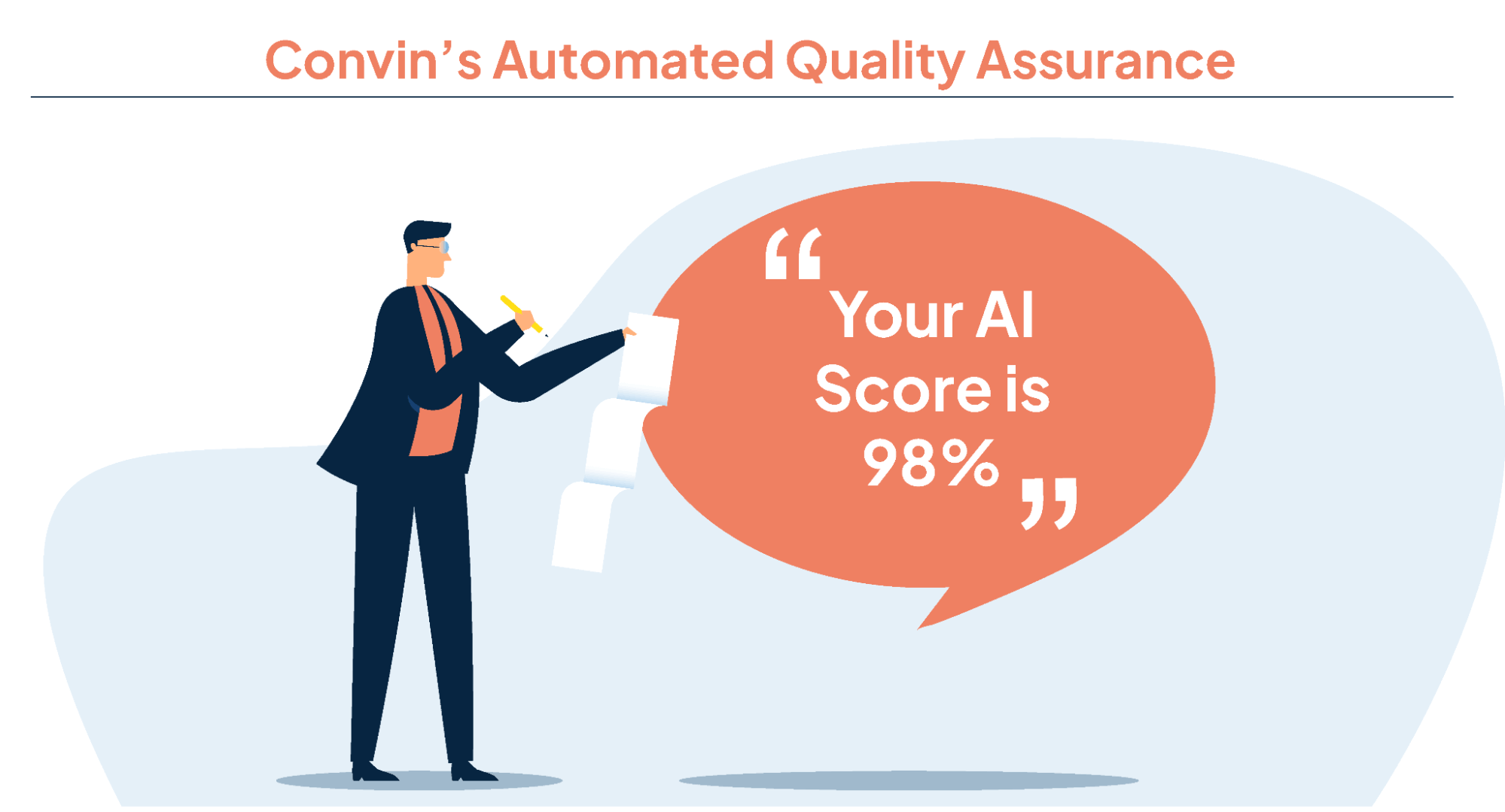Brand intelligence refers to collecting, analyzing, and applying data related to a brand's performance, market positioning, customer perception, and competitive landscape. This intelligence is crucial for understanding how a brand is perceived in the market and making informed decisions to enhance its presence and effectiveness.
Brand intelligence encompasses various tools and platforms that gather insights from multiple sources, including social media, customer feedback, and market trends, to provide a comprehensive view of the brand's standing.
Boost performance: Track brand intelligence for call center success!
What is Brand Intelligence?
Brand intelligence is a strategic approach that involves collecting, analyzing, and utilizing data related to a brand's performance, market perception, and competitive environment. It provides businesses with actionable insights that can drive decision-making and strategic planning.
The main components of brand intelligence include:
1. Data Collection

- Customer Feedback: Gathering data from customer reviews, surveys, and feedback forms to understand their experiences and perceptions.
- Social Media Monitoring: Analyzing social media interactions and mentions to gauge public sentiment and engagement.
- Market Research: Conduct studies and surveys to gather information on market trends and consumer behavior.
2. Data Analysis
- Sentiment Analysis: Using brand intelligence software to determine the emotional tone behind customer comments and feedback.
- Trend Analysis: Identifying patterns and trends in customer behavior and market conditions.
- Competitive Analysis: Evaluating competitors' activities and strategies to understand their strengths and weaknesses.
3. Data Utilization
- Strategic Planning: Using insights from brand intelligence solutions to inform marketing strategies and business decisions.
- Performance Measurement: Monitoring key performance indicators (KPIs) to assess the effectiveness of branding efforts. Utilizing logo maker AI can streamline the creation of branding materials to align with strategic planning.
- Customer Relationship Management: Enhancing customer interactions and satisfaction based on insights derived from brand intelligence.
Importance of Brand Intelligence in Call Centers
In call centers' highly competitive and customer-centric environment, brand intelligence plays a pivotal role in driving success.
Here’s why it is essential
1. Enhanced Customer Understanding: By leveraging brand intelligence software, call centers can gain deep insights into customer preferences and behaviors. This allows agents to tailor their interactions, resulting in more personalized and satisfactory customer experiences.
2. Optimized Agent Performance: Brand intelligence solutions can analyze agent performance and identify areas for improvement. Tools like Convin provide automated coaching based on performance metrics, ensuring that agents receive personalized training.
3. Strategic Decision-Making: Brand intelligence platforms provide insights into how a brand is perceived relative to competitors. This helps call centers strategize their approach to market positioning and differentiation.
4. Competitive Advantage: Competitive brand intelligence allows call centers to monitor competitors' strategies and performance. This information is crucial for developing tactics to gain a competitive edge.
5. Efficiency and Productivity: Brand intelligence solutions often include automation features that streamline routine tasks such as call transcription and data entry, freeing up agents to focus on more complex issues.
How Brand Intelligence Differs from Market Intelligence?
While brand and market intelligence aim to provide valuable insights for business decision-making, they focus on different aspects of the business environment.
1. Focus
- Brand Intelligence focuses primarily on the brand itself. It involves understanding how customers perceive the brand, identifying strengths and weaknesses, and optimizing branding strategies. As part of brand intelligence, AI logos help create consistent designs that strengthen brand identity and resonate with modern audiences.
- Market Intelligence is broader in scope and encompasses the entire market environment. It includes competitor analysis, market trends, regulatory changes, and wider economic conditions.
2. Components
- Includes customer feedback, social media monitoring, sentiment analysis, and brand performance metrics. It leverages tools and platforms specifically designed for tracking brand-specific data.
- Involves competitor analysis, market trends, industry reports, and economic indicators. It often uses market research firms, industry publications, and financial data sources.
3. Applications
- Used to enhance brand perception, improve customer satisfaction, and refine marketing strategies. For instance, a brand intelligence platform might help a company understand customer sentiment about a recent product launch.
- They are applied in strategic planning, market entry decisions, product development, and competitive positioning. For example, a company might use market intelligence to identify a new market opportunity or to anticipate competitive moves.
4. Tools and Platforms
- Solutions, like Recorded Future Brand Intelligence, provide specific insights into how a brand is performing and being perceived in the market. These tools focus on brand-specific data and analytics.
- It often involves a broader range of tools, including industry databases, market research reports, and economic forecasting models, which provide a macro view of the market environment.
Why Call Center Leaders Should Track Brand Intelligence?

Brand intelligence is critical for call center leaders aiming to elevate customer experience.
Here’s how tracking brand intelligence can make a significant impact:
1. Personalized Interactions
- By leveraging brand intelligence software, call centers can analyze customer data to understand individual preferences and behaviors. This allows agents to tailor their interactions, making customers feel valued and understood.
Example: Using insights from Recorded Future Brand Intelligence, a call center can customize scripts and solutions based on previous customer interactions, leading to a more personalized and satisfying customer experience.
2. Proactive Issue Resolution
- Brand intelligence solutions help identify common pain points and recurring issues reported by customers. By addressing these proactively, call centers can enhance customer satisfaction and reduce the number of negative interactions.
Example: If brand intelligence data reveals frequent complaints about a particular product feature, the call center can prepare agents with appropriate responses and solutions before customers even raise the issue.
3. Building Customer Loyalty
- Consistently positive interactions foster customer loyalty. Call centers can implement changes that improve overall customer satisfaction and loyalty by continuously monitoring and analyzing customer feedback through a brand intelligence platform.
Example: Regularly analyzing sentiment data from social media and feedback forms helps call centers identify areas for improvement, ensuring that customers remain loyal to the brand.
Improving Agent Performance

Tracking brand intelligence is essential for enhancing agent performance in call centers. Here’s why
1. Targeted Training and Coaching
- Brand intelligence software provides detailed insights into agent performance, highlighting strengths and areas for improvement. This data can be used to develop targeted training programs.
Example: Platforms like Convin use brand intelligence to identify specific training needs for agents, leading to more effective coaching sessions and better performance.
2. Real-Time Assistance
- Tools like Recorded Future Brand Intelligence offer real-time guidance to agents during customer interactions. This helps agents provide accurate information and resolve issues more efficiently.
Example: Real-time prompts and suggestions can assist agents in handling complex queries, improving their confidence and effectiveness during calls.
3. Performance Monitoring and Feedback

- Continuous monitoring of agent performance through brand intelligence solutions ensures that agents receive timely feedback and support, which helps maintain high-performance standards.
Example: Regular performance reports generated by brand intelligence platforms enable supervisors to provide constructive feedback and recognize top-performing agents.
Driving Operational Efficiency
Brand intelligence is a powerful tool for driving operational efficiency in call centers. Here’s how it can help
1. Optimizing Workflows
- Brand intelligence software can identify inefficiencies in call center workflows, allowing leaders to streamline processes and reduce operational bottlenecks.
Example: Analyzing call handling times and customer wait times can help optimize agent schedules and reduce unnecessary delays.
2. Reducing Costs
- Brand intelligence solutions help reduce costs associated with customer churn, repeated calls, and escalations by improving agent performance and enhancing customer experience.
Example: Efficient handling of customer queries reduces the need for repeated interactions, leading to lower operational costs.
3. Data-Driven Decision Making
- Brand intelligence platforms provide comprehensive data that supports informed decision-making. This helps call center leaders implement strategies that improve efficiency and effectiveness.
Example: Brand intelligence insights can guide decisions on resource allocation, technology investments, and process improvements, leading to better overall performance.
Enhance efficiency: Track brand intelligence for call center excellence!
This blog is just the start.
Unlock the power of Convin’s AI with a live demo.

The Role of Brand Intelligence Software
Brand intelligence software is designed to provide in-depth insights into a brand’s performance, customer perception, and competitive positioning.
Here are some key features that make brand intelligence software effective:
1. Comprehensive Data Collection: Effective brand intelligence software collects data from multiple sources, including social media, customer feedback, market research, and competitor activities. This holistic approach ensures a well-rounded understanding of the brand's standing.
2. Advanced Analytics and Reporting: The software should offer robust analytical tools that can process large volumes of data to identify trends, sentiments, and actionable insights. Detailed reporting capabilities are essential for presenting these insights in an understandable format.
3. Real-Time Monitoring: Real-time monitoring capabilities allow brands to track customer interactions and market developments as they happen. This feature is crucial for responding promptly to emerging issues or opportunities.
4. Customizable Dashboards: They allow users to present data according to their specific needs, making it easier to focus on the most relevant metrics and insights.
5. Integration Capabilities: Effective brand intelligence software should seamlessly integrate with other organizational tools and systems, such as CRM, social media management tools, and customer feedback platforms.
6. Predictive Analytics: These features use historical data to forecast future trends and potential issues. This allows brands to address challenges and capitalize on opportunities proactively.
Benefits of Using Brand Intelligence Software in Call Centers
Using brand intelligence software in call centers offers numerous benefits that can significantly enhance performance and customer satisfaction:
1. Enhanced Customer Insights: By utilizing brand intelligence solutions, call centers gain a deeper understanding of customer needs, preferences, and pain points. This insight enables more personalized and effective customer interactions.
2. Improved Agent Performance: Brand intelligence software provides detailed performance analytics that help identify agent strengths and weaknesses. This data can be used to deliver targeted training and support.
3. Increased Operational Efficiency: Brand intelligence platforms' automation and data integration capabilities streamline various operational processes, reducing the time and effort required to manage customer interactions.
4. Proactive Issue Resolution: Real-time monitoring and predictive analytics enable call centers to identify and address potential issues before they escalate. This proactive approach minimizes negative customer experiences and enhances overall satisfaction.
5. Strategic Decision-Making: Brand intelligence software's comprehensive data and insights support informed decision-making. Call center leaders can develop strategies based on accurate and up-to-date information.
6. Competitive Advantage: Brand intelligence software helps call centers stay ahead by continuously monitoring market trends and competitor activities. This competitive brand intelligence is crucial for adapting to market changes and identifying new opportunities.
Utilizing Convin Insights for Advanced Brand Intelligence and Analysis
Convin Insights is a sophisticated brand intelligence platform offering comprehensive solutions for call centers to optimize their performance and enhance customer experience. By leveraging AI and machine learning, Convin Insights provides detailed analysis and actionable insights into customer interactions, agent performance, and market trends.
How Convin Insights Facilitates Brand Intelligence
1. Comprehensive Data Collection
- Multi-Channel Integration: Convin integrates with various communication platforms, including cloud telephony, video conferencing, and chat systems. This allows for collecting interaction data from multiple channels, providing a holistic view of customer engagements.
- Automated Transcription: All conversations are automatically transcribed into text, enabling detailed analysis without manual intervention.
2. Advanced Analytics and Reporting
- Custom Scorecards: Organizations can define custom scorecards to evaluate agent performance and customer interactions. These scorecards help identify key metrics that drive customer satisfaction and operational efficiency.
- Sentiment Analysis: Convin's AI-driven sentiment analysis tools assess the emotional tone of customer interactions, providing insights into customer satisfaction and areas for improvement.
3. Real-Time Monitoring and Assistance

- Agent Assist: Convin offers real-time monitoring and guidance during live calls. The Agent Assist feature uses natural language processing and machine learning to provide intelligent suggestions, prompts, and warnings, helping agents handle calls more effectively.
- Live Analysis: Convin can conduct real-time analysis of ongoing conversations, enabling immediate corrective actions and enhancing overall call quality.
4. Targeted Coaching and Training

- Automated Coaching: Based on the analysis of recorded conversations, Convin identifies areas where agents can improve and generates personalized coaching sessions. This automation ensures continuous improvement without the need for constant manual supervision.
- Peer-to-Peer Coaching: Top-performing agents’ conversations can be added to Convin’s library as training modules. This peer-to-peer coaching method facilitates knowledge sharing and accelerates agent development.
5. Performance Metrics and Insights
- Detailed Reports: Convin generates comprehensive performance reports highlighting key performance indicators (KPIs) and customer experience metrics. These reports help managers understand where improvements are needed and track progress over time.
- Behavior Analysis: The platform analyzes conversation behaviors to identify patterns that lead to positive or negative outcomes. This insight helps refine interaction strategies and improve overall performance.
Maximizing Call Center Success with Advanced Brand Intelligence Solutions
In the highly competitive call center landscape, leveraging brand intelligence is now optional but essential. Advanced brand intelligence software provides comprehensive insights into customer perceptions, market trends, and competitive positioning, enabling call centers to enhance their operational efficiency and customer experience.
By adopting these brand intelligence solutions, call centers can significantly improve customer satisfaction, streamline operations, and achieve sustainable growth. Whether enhancing agent performance through targeted coaching, proactively resolving issues with real-time monitoring, or gaining a competitive edge with comprehensive market analysis, brand intelligence platforms are pivotal in driving call centers' success.
See it in action: Book your demo now!
FAQs
1. What do you mean by brand intelligence?
Brand intelligence involves collecting and analyzing data about a brand’s performance, market position, customer perception, and competitive landscape. It helps businesses make informed decisions about branding strategies, marketing campaigns, and product development to enhance brand value and customer loyalty.
2. What do you mean by customer intelligence?
Customer intelligence refers to gathering and analyzing data about customers' behaviors, preferences, and interactions with a company. This information improves customer experience, personalizes marketing efforts, and drives strategic business decisions.
3. What is CI in a call center?
CI in call centers stands for Call Intelligence, which involves using data and analytics to monitor, manage, and optimize operations, including agent performance, call quality, customer interactions, and overall efficiency.
4. What is an artificial intelligence call center?
An artificial intelligence call center leverages AI technologies like chatbots, virtual assistants, and machine learning algorithms to automate customer service tasks, provide real-time assistance, analyze interactions, and enhance overall efficiency and customer satisfaction.




.webp)



.avif)